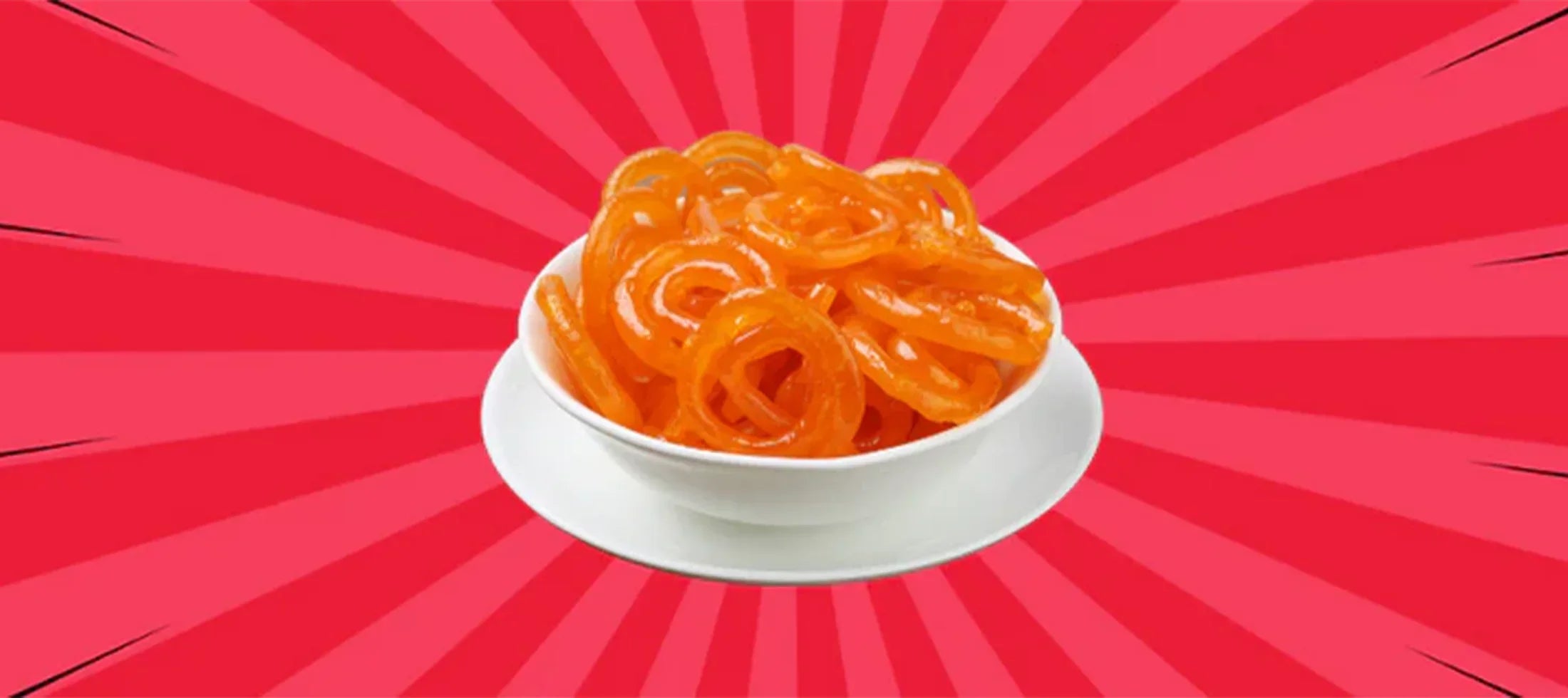While jalebi is a delicious dessert that is loved by many, it's not the healthiest choice for your diet.
Jalebi Calories
Let's understand why it's unhealthy
Can we make a healthier version of Jalebi?
Bottom line
FAQs:
Is jalebi healthy to eat?
Jalebi is not considered a healthy food because it is deep-fried and soaked in sugar syrup. It contains large amounts of refined flour, sugar, and oil which provide empty calories without any essential nutrients. Eating jalebi often can increase the risk of weight gain, high blood sugar, and poor heart health. It may also lead to digestive discomfort due to its heavy and oily nature. For health-conscious individuals, jalebi should be enjoyed rarely as a treat.
How many calories are in 1 jalebi?
One medium-sized jalebi contains around 150 to 200 calories depending on its size and preparation. The calories mostly come from sugar and oil, which make it energy-dense but not nutrient-rich. A serving of two to three jalebis can easily cross 400 to 500 calories, which is equal to a full meal. This makes jalebi a high-calorie sweet with little nutritional value. People monitoring their weight or blood sugar should keep this in mind before eating.
Can we eat jalebi while dieting?
Jalebi is not recommended for dieting because it is high in sugar, oil, and refined flour. These ingredients make it calorie-dense without providing protein, fiber, or essential nutrients. Eating jalebi during a diet can slow weight loss progress and cause blood sugar spikes. However, if someone craves it, a very small piece can be taken occasionally as part of a controlled cheat meal. Consistency in avoiding such sweets is more effective for achieving diet goals.
Is jalebi high in protein?
Jalebi is not high in protein, as it is made from refined flour, sugar, and fried in oil. These ingredients mainly provide carbohydrates and fats, with almost no protein content. Protein is essential for muscle building, tissue repair, and overall health, which jalebi does not support. On average, one piece of jalebi provides less than 1 gram of protein. This makes it a poor choice for those looking to meet their protein needs.
What is the best time to eat jalebi?


Share:
The Irresistible Snack Adventure Awaits!
Healthy Swaps: Transforming Classic Cupcake Recipes into Nutritious Delights